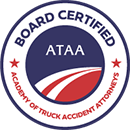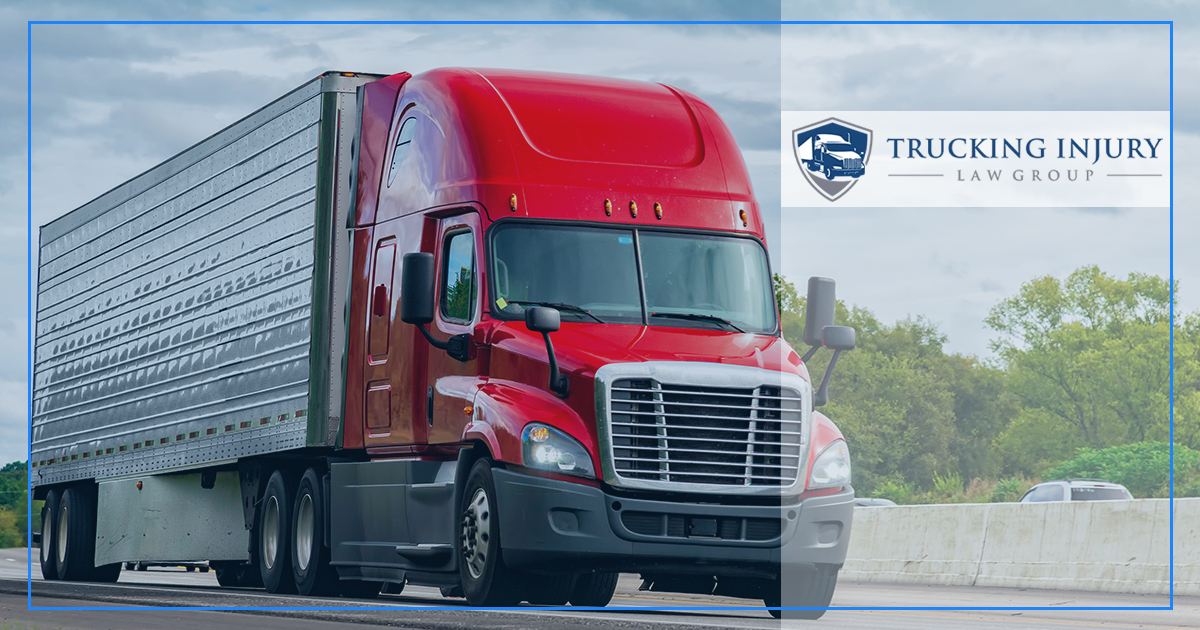What Evidence Does a Truck’s “Black Box” Collect in an Accident?
If you’ve ever watched the news in the aftermath of a plane crash, then you’ve likely heard a lot of discussion about whether its “black box” has been recovered yet by investigators.
These event data recorders (EDRs), as they’re also called, are critical to investigations into what caused accidents like those and are also extremely important for determining what contributing factors to tractor-trailer wrecks were too.
Below, we’ll discuss what evidence a truck’s black box collects in an accident and the importance of that data if you decide to pursue a claim.
Information Contained on Event Data Recorders
These devices track information regarding the vehicle and its occupants leading up to, during, and immediately following a crash, such as:
- Whether a vehicle is turned on or off
- Drive time
- Steering choices made
- Whether any fault codes were pulled
- If the crash caused the airbags to deploy
- How the throttle was positioned
- Engine diagnostic information
- Location according to the GPS
- Whether seat belts were being utilized
- How fuel efficient the vehicle is/was
- How fast the truck’s operator was traveling at
- If a trucker applied their brakes
- Driver inputs
- Whether there was any tampering with the device
- Whether the crash activated the automatic collision notification (ACN) system
- How severe the crash was
Do All Trucks Have EDRs?
Black boxes come on most big rigs, but not all of them. They only first became mandated in 2015, and operators had until 2019 to become in compliance. Even still, some trucks may not come equipped with these data recorders or be required to have one if:
- Trucks were manufactured before 2000
- A trucker performs drive-away or tow-away services
- The tractor-trailer operator uses paper records of duty status (RODS) eight or fewer days per 30-day period
What Causes a Black Box To Turn On?
There are two primary types of EDRs. One kind only starts recording once it senses that a crash is imminent, such as if there’s a sudden deceleration. However, others operate continuously or run constantly and record over data intermittently up until a crash occurs.
What Purpose Does EDR Data Serve in a Truck Crash Case?
Any data that shows what happened leading up to, while a crash is occurring, and after it can assist in helping investigators determine what and who caused the incident.
For example, if there was tempering with the unit, then that may point to a mechanic, trucking company, or trucker having intentionally attempted to erase information. If there’s evidence of speeding and sudden braking around the time the crash occurred, then this may indicate that the trucker was driving recklessly.
In short, a comprehensive analysis of all the data recorded can paint a much clearer picture as to what happened and who’s responsible, which, combined with other evidence, can greatly aid an attorney, for example, in forwarding their client’s case.
How Long Does a Black Box Preserve Crash Data?
There’s a lot of conflicting information about how long any data surrounding an accident is preserved.
It can potentially be overwritten at specific intervals, such as after a certain amount of miles driven or until its memory is full (as is the case with some surveillance cameras, for example), or it may remain there until another wreck occurs.
How long it preserves this data may depend on the EDR system installed on the truck or other vehicle.
It’s important to note, though, that the Federal Motor Carrier Safety Administration (FMCSA) specifically mandates how long trucking companies must retain electronic logging device (ELD) data, which is different from that of a black box.
The federal agency requires them to do so for at least six months. Fleet companies must also retain separate backup files of this data for the same amount of time. Some suggest that the 6-month rule applicable to ELDs also applies to EDRs.
Securing Critical Evidence Following a Truck Accident
Tractor-trailer collisions, like rear-end crashes with large trucks, often result in serious injuries or fatalities. Thus, doing much besides focusing on receiving life-saving care and rehabbing or grieving the premature loss of your loved one may not be top on your list.
However, if you’re wondering what to do after a truck crash, reaching out to legal counsel should be a priority. Our Trucking Injury Law Group team would urge you not to delay in making sure any potential EDR data that may exist is preserved, though. A truck accident lawyer can help.
Attorneys like ours only handle crashes involving 18-wheelers. Thus, we’re very clear as to what it takes to access ELR data necessary to prove trucker negligence occurred. Requesting this information as quickly as possible before it’s deleted can make or break your potential claim.
So, if you were hurt in a semi-truck accident, reach out as soon as possible to ensure this data isn’t deleted, and you have the strongest chance of holding those responsible accountable for their actions.






